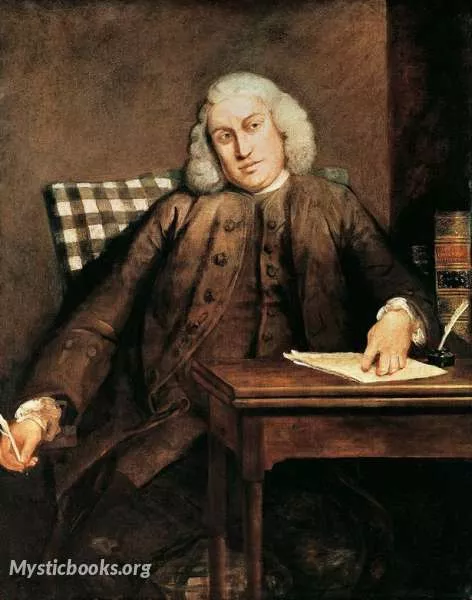
Timeline
Title
Country/Nationality
Samuel Johnson
Samuel Johnson, often called Dr Johnson, was an English writer who made lasting contributions to English literature as a poet, playwright, essayist, moralist, critic, biographer, editor and lexicographer. He was a devout Anglican, and a committed Tory. The Oxford Dictionary of National Biography classes him as "arguably the most distinguished man of letters in English history". James Boswell's Life of Samuel Johnson was selected by Walter Jackson Bate as "the most famous single work of biographical art in the whole of literature".
Born in Lichfield, Staffordshire, Johnson attended Pembroke College, Oxford, for just over a year before lack of funds forced him to leave. After work as a teacher, he moved to London and began writing for The Gentleman's Magazine. His early works include Life of Mr Richard Savage, the poems London and The Vanity of Human Wishes and the play Irene. After nine years' effort, Johnson's A Dictionary of the English Language appeared in 1755, with far-reaching effects on Modern English. It was acclaimed as "one of the greatest single achievements of scholarship" and brought him popularity and success. Until the arrival of the Oxford English Dictionary 150 years later, Johnson's was the pre-eminent English dictionary. Later work included essays, an annotated edition of The Plays of William Shakespeare and a widely read The History of Rasselas, Prince of Abissinia. In 1763 he befriended James Boswell, with whom he later travelled to Scotland, as Johnson described in A Journey to the Western Islands of Scotland. Near the end of his life he produced a massive, influential Lives of the Most Eminent English Poets of 17th and 18th centuries.
Johnson was tall and robust. His gestures and tics disconcerted some on meeting him. Boswell's Life, along with other biographies, documented Johnson's behaviour and mannerisms in a detail that allows a posthumous diagnosis of Tourette syndrome, a condition then still not defined or diagnosed. After several illnesses, he died on the evening of 13 December 1784 and was buried in Westminster Abbey. In subsequent years he was progressively seen to have had a lasting effect on literary criticism and claimed by some to be the one truly great critic of English literature.
Books by Samuel Johnson

Plan and Preface to a Dictionary of English
The published dictionary was a huge book: with pages nearly 1½ feet tall and 20 inches wide, it contained 42,773 words; it also sold for the huge price of £4/10s. ($400?). It would be years before "Johnson's Dictionary", as it came to be known, would...

Selected Essays of Samuel Johnson
This is a volume of selected essays by "the great master of reason" Samuel Johnson. The most famous exerpts from The Rambler, The Adventurer and The Idler are included, covering a vast range of topics.

Rasselas, Prince of Abyssinia
The History of Rasselas, Prince of Abissinia, originally titled The Prince of Abissinia: A Tale, though often abbreviated to Rasselas, is an apologue about bliss and ignorance by Samuel Johnson. The book's original working title was "The Choice of Li...

Prayers and Meditations
The prayers and meditations of Samuel Johnson, published posthumously by George Strahan to whom Johnson had entrusted the manuscripts. Johnson had been writing these down for over forty years. They often show him at his most repentant, melancholy and...

A Journey to the Western Isles of Scotland
It is a vivid description of the landscapes, customs, and people of the region, as observed through Johnson's eyes. In this book, Samuel Johnson takes the reader on a journey through the rugged and remote islands of the Scottish west coast, document...

Plan and Preface to a Dictionary of the English Language
The published dictionary was a huge book: with pages nearly 1½ feet tall and 20 inches wide, it contained 42,773 words; it also sold for the huge price of £4/10s. ($400?). It would be years before "Johnson's Dictionary", as it came to be known, would...